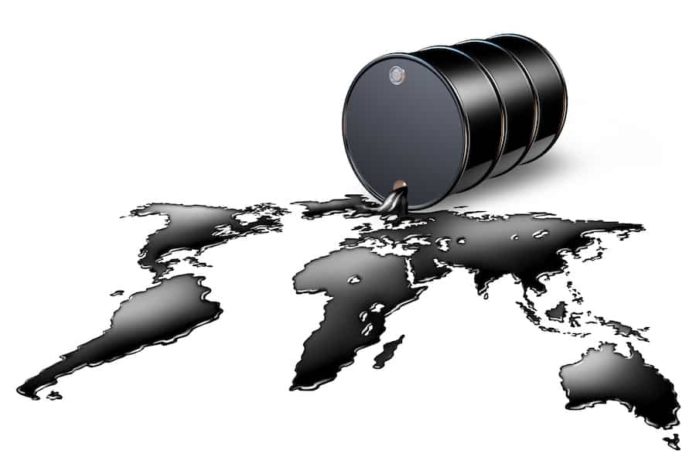
Brent crude oil topped $103 a barrel, European stocks fell sharply and shares in Moscow dropped 45 per cent after Russia’s President Vladimir Putin launched a military invasion of Ukraine.
The regional Stoxx Europe 600 share index lost 2.8 per cent in early trades, taking it through a technical correction, defined as a 10 per cent decline from a recent peak.
Germany’s Xetra Dax fell 3.7 per cent, with similar falls across most European bourses. Brent crude rose as much as 7.2% to $103.78, the first time the international benchmark has crossed the $100 threshold since 2014.
In Amsterdam, front month natural gas futures soared 28% to €114 per megawatt hours.
Meanwhile, traders piled into government bonds to shelter from volatility in riskier asset classes and the spot gold price hit a 13-month high of almost $1,949 per troy ounce.
The escalation of the conflict in Ukraine is dominating the global market narrative because of the potential for sanctions to cut Russia’s energy and resources out of global supply chains, causing price shocks.
“A situation which seriously chokes off energy supplies from Russia will affect the world as a negative supply shock,” said Sunil Krishnan, head of multi-asset funds at Aviva Investors.
“Some of that [effect] will be through inflation and some [will be] through a chilling impact on growth. We need to watch the euro area most closely in that regard, but it will also affect the US.”
“If this situation continues to deteriorate I wouldn’t be surprised to see Brent at $120 a barrel, and that is really the point you’d expect to see co-ordinated intervention [by global suppliers],” said Robert Rennie, global head of market strategy at Westpac.
As explosions were reported near Kyiv early on Thursday morning, the Moscow Exchange suspended all trading.
